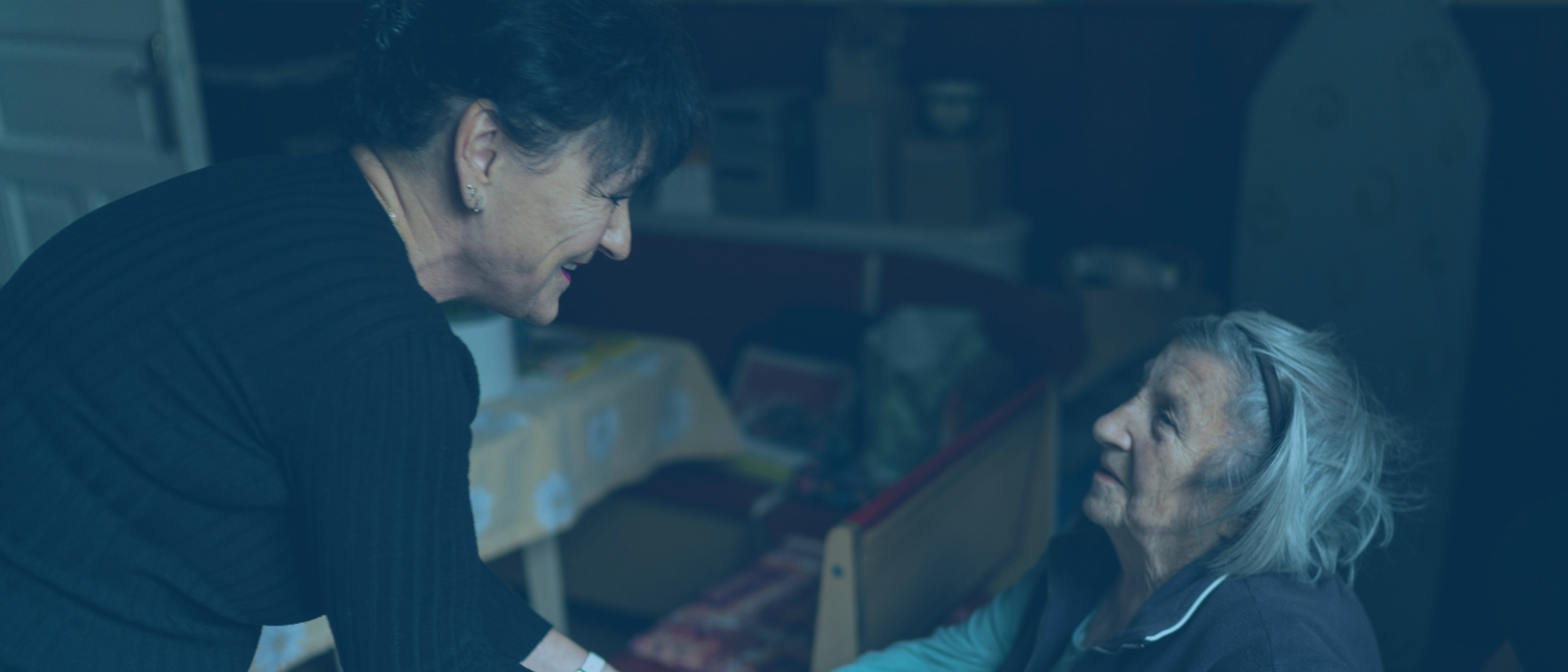Tips for Caregivers: Managing Incontinence with Dignity and Comfort
Taking on the role of a caregiver for someone with incontinence is a profound act of love and dedication. It is a journey that requires patience, strength, and a deep well of compassion. While managing the physical aspects of care is important, how you approach it can make all the difference in preserving your loved one’s sense of self and dignity.
At Triton, we are part of the support network for countless caregivers in our community. We understand that your role goes far beyond simply providing supplies; you are a source of comfort, a protector of dignity, and a champion for your loved one’s well-being. This guide offers practical tips and heartfelt advice to help you manage incontinence care in a way that prioritizes both comfort and respect.
Create a Routine Built on Respect
A predictable routine can bring a sense of stability and normalcy to both you and the person you care for. It reduces anxiety and helps manage incontinence more effectively.
Schedule Regular Bathroom Visits
Establish a consistent schedule for trips to the toilet, perhaps every two or three hours. This practice, known as timed voiding, can help train the bladder and may reduce the number of accidents. Present it as a simple part of the daily schedule, like mealtimes, rather than a reaction to their condition.
Be Mindful of Cues
Pay attention to your loved one’s nonverbal signals. They may become restless, fidgety, or pull at their clothing when they need to use the bathroom. Responding to these subtle cues promptly shows that you are attuned to their needs and can prevent an accident before it happens.
Master the Art of Discreet and Dignified Changing
The process of changing an incontinence product is perhaps the most personal aspect of this care. Approaching it with sensitivity is crucial.
Prepare Everything in Advance
Before you begin, gather all your supplies: fresh incontinence products, cleansing wipes, barrier cream, and disposable gloves. Having everything within arm’s reach makes the process quicker and smoother, minimizing the time your loved one feels exposed.
Use Respectful Language
The words you choose matter. Use clinical, neutral terms like “brief” or “pad” instead of “diaper,” which can feel infantilizing. During the change, speak to them calmly and let them know what you are doing at each step. This simple narration can reduce feelings of helplessness.
Provide Privacy
Always perform changes in a private space. Close the door and draw the curtains. If your loved one is in bed, use a blanket or a large towel to cover the parts of their body that are not being cleaned. This small gesture can make a huge difference in helping them feel less vulnerable.
Prioritize Skin Health to Maximize Comfort
Comfort is deeply connected to skin health. The moisture associated with incontinence can quickly lead to painful skin irritation and breakdown if not managed carefully.
Gentle and Thorough Cleansing
After an accident, it is vital to clean the skin thoroughly. Use soft, pre-moistened cleansing wipes that are designed for sensitive skin. Avoid standard soap and water, which can be harsh and drying. Pat the skin dry gently; never rub, as friction can cause damage.
Use a Protective Barrier Cream
Once the skin is clean and completely dry, apply a thin layer of quality barrier cream. This creates a protective shield that prevents moisture from irritating the skin, acting as a crucial defense against the incontinence-associated dermatitis.
Choose Breathable Products
Select incontinence products with breathable, cloth-like outer layers. These materials allow air to circulate, which keeps the skin cooler and drier. A breathable product helps prevent the warm, damp environment where rashes and skin breakdown thrive, leading to greater overall comfort.
Foster Independence and Control
Even when someone requires significant care, finding ways to involve them in the process can reinforce their sense of autonomy.
Offer Choices
Whenever possible, give your loved one a choice. This could be as simple as asking, “Would you like to get cleaned up now or in five minutes?” or “Which pair of pants would you like to wear today?” These small decisions help them retain a sense of control over their own life.
Encourage Self-Care
If they are able, encourage them to participate in their own care. They might be able to use the cleansing wipes themselves or apply the barrier cream. Supporting their ability to perform these tasks, even partially, is a powerful way to foster independence.
Stocking Up for Peace of Mind
The stress of running out of essential supplies can be immense. An unexpected shortage can disrupt routines and cause significant anxiety for both you and your loved one.
Automate Your Supplies
Consider a subscription service for your incontinence products. Our incontinence program is designed to support caregivers by delivering a consistent supply of necessary items right to your door. This eliminates last-minute store runs and provides the peace of mind that comes from knowing you are always prepared.
Keep a "Go-Bag" Ready
Prepare a small, discreet bag with a change of clothes and all the necessary supplies. Keeping this in your care or by the door means you can feel confident in leaving the house for appointments or social visits, knowing you are ready for any situation.
Taking Care of the Caregiver
Your well-being is the foundation of the care you provide. You cannot pour from an empty cup. It is vital to acknowledge the emotional and physical demands of your role and take steps to care for yourself.
Find moments for yourself, connect with friends, or join a caregiver support group. Sharing your experiences with others who understand can be incredibly validating and restorative. Remember that seeking help, whether from family, friends, or a professional service, is a sign of strength.
Being a caregiver is a journey of immense compassion. By managing incontinence with dignity, respect, and a focus on comfort, you are doing more than meeting a physical need. You are affirming your loved one’s value and humanity, and there is no greater gift you can give.

